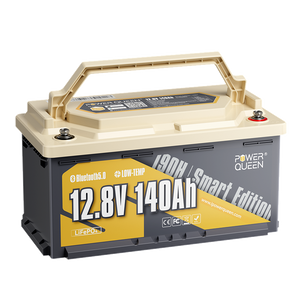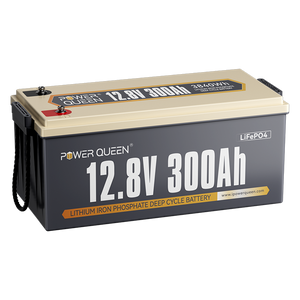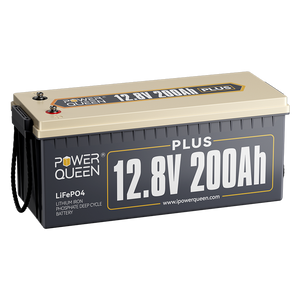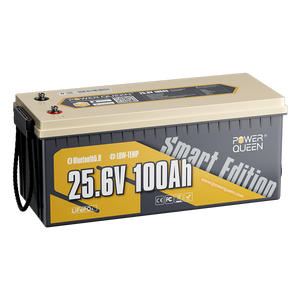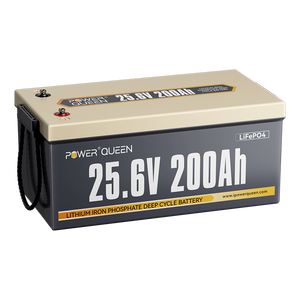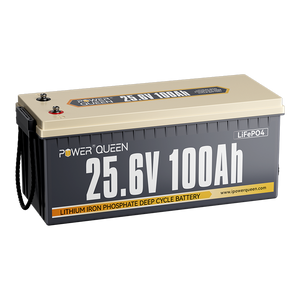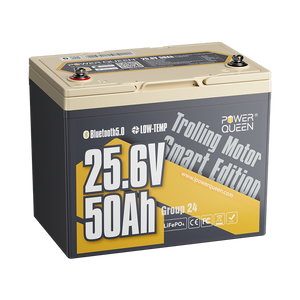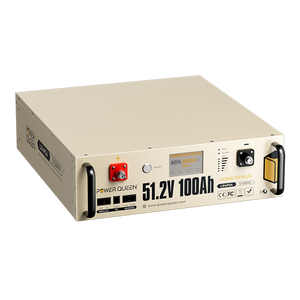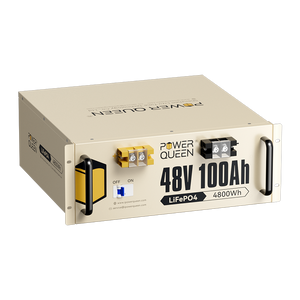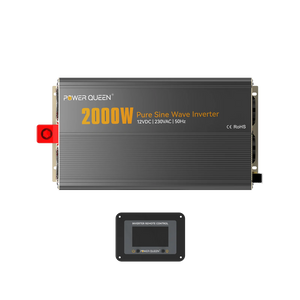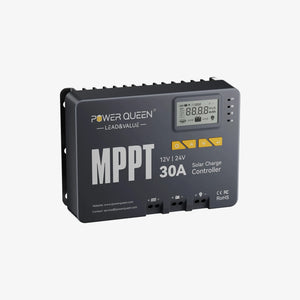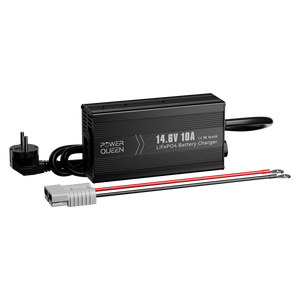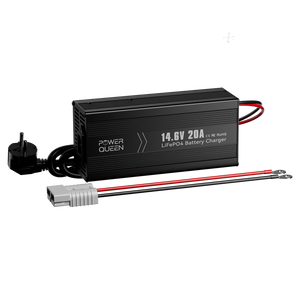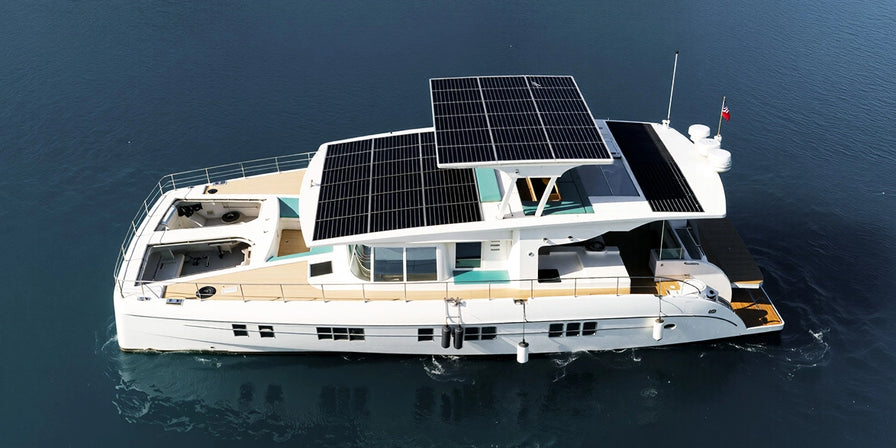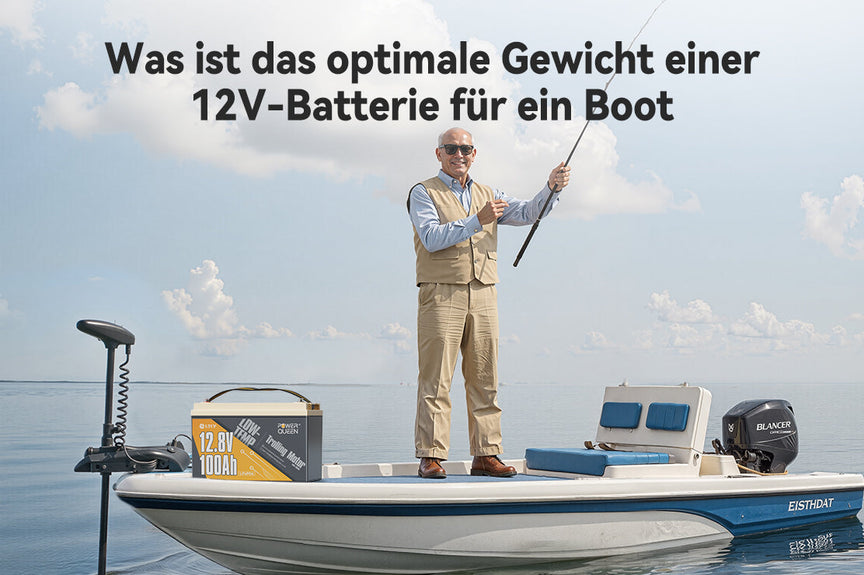If a lithium battery gets wet, what happens? How can you take preventive measures?
by
—
December 19, 2024
Due to their long lifespan and high energy density, lithium batteries are widely used in a variety of electronic devices. However, the question often arises: what happens if a lithium battery gets wet? This article addresses the potential hazards that can occur when lithium batteries are exposed to moisture, as well as safety precautions and ways to minimize damage.
Table of contents
Part 1: Are lithium batteries waterproof?
The quality of the lithium batteries and the manufacturer's design determine how long they can be exposed to water. Power Queen batteries For example, they are completely sealed and have an IP65 protection rating, meaning they are waterproof and function perfectly even in slightly humid environments. However, since water can penetrate the battery, prolonged exposure to high humidity can lead to irreversible damage.

It is important to understand the manufacturer's water resistance requirements when considering other types of lithium-ion batteries. Although most lithium batteries have sealed cells, each manufacturer specifies a different level of water resistance. The battery's condition can be significantly affected by the amount and duration of water exposure. While many lithium batteries can withstand rain or accidental splashes, it is best to follow the manufacturer's instructions and, if necessary, take extra precautions to avoid contact with water.
Immersing a lithium battery in water can seriously damage it, impairing its performance or even rendering it unusable, even though different types of lithium batteries have varying degrees of water resistance. Batteries must therefore be protected from excessive contact with water. To avoid potential damage, no type of lithium battery should be immersed in water, although Power Queen batteries can tolerate a certain amount of moisture and continue to function optimally.
It is important to understand the manufacturer's water resistance requirements when considering other types of lithium-ion batteries. Although most lithium batteries have sealed cells, each manufacturer specifies a different level of water resistance. The battery's condition can be significantly affected by the amount and duration of water exposure.Although many lithium batteries can withstand rain or accidental splashes of water, it is best to follow the manufacturer's instructions and, if necessary, take extra care to avoid contact with water.
Immersing a lithium battery in water can seriously damage it, impairing its performance or even rendering it unusable, even though different types of lithium batteries have varying degrees of water resistance. Batteries must therefore be protected from excessive contact with water. To avoid potential damage, no type of lithium battery should be immersed in water, although Power Queen batteries can tolerate a certain amount of moisture and continue to function optimally.
1.1 What does protection class IP65 mean?
The degree of protection of an electrical enclosure against the ingress of solid foreign objects, dust, and water is classified by the IP65 standard. In IP65, "IP" stands for "Ingress Protection," while the "65" indicates the degree of protection.
An IP65 classification means, in particular, the following:
- SolidThe “6” means that the housing is dustproof, i.e. it offers complete protection against the ingress of dust and other solid particles.
- liquidsThe number "5" indicates that the housing is protected against low-pressure jets from any angle. This means that water sprayed against the housing from any angle using a 6.3 mm nozzle will not cause any damage.
A device or enclosure with an IP65 protection rating is ideal for outdoor use where water and dust are a concern. It offers a high level of protection against these factors and is therefore suitable for a wide range of applications, such as electrical switch boxes, outdoor lighting, and certain household appliances.
Part 2. What happens upon contact with water?
The amount and duration of water exposure greatly influence how lithium batteries are damaged. The sealed design of Power Queen batteries protects vital battery components from damage caused by sporadic water contact. However, prolonged exposure to water can cause damage, especially to sensitive parts such as the battery terminals. If water penetrates the internal components of the battery, potentially dangerous chemical reactions can occur.
If a lithium battery is immersed in water, it can unintentionally discharge and thus damage the battery, as a current channel between the terminals can open. Although Power Queen batteries While other high-quality lithium batteries can tolerate some moisture and continue to function, prolonged contact with water is essential for the battery's lifespan and safety.
Part 3. How does saltwater affect a lithium battery?
Contact with salt water can have a negative effect on lithium batteries.A lithium battery can experience a number of problems when it comes into contact with salt water:
- corrosionThe salts dissolved in the salt water make it extremely corrosive, which can lead to corrosion of the battery terminals and other metal parts. This corrosion can impair the battery's electrical conductivity, potentially resulting in a drop in performance.
- Short circuitsSaltwater is a good conductor of electricity. If it gets inside the battery casing, it can create a direct path for current flow, potentially causing a short circuit. This poses a serious safety problem, as it can lead to overheating, leakage, or even fire.
- Chemical reactionsSaltwater can trigger chemical reactions in the battery, leading to the formation of hazardous substances and accelerating the deterioration of the internal parts.
- Reduced lifespanThe lifespan of a lithium battery can be significantly reduced by prolonged contact with salt water. The battery may fail prematurely due to internal damage and the corrosive properties of salt water.
It is recommended that Power Queen Trolling Motor Lithium Batteries These batteries are used in marine applications to reduce saltwater damage to lithium batteries. This is because they feature an improved BMS (Battery Management System) that is resistant to moisture, dust, water, and salt spray, making them reliable even in humid conditions.

Part 4. Can wet lithium batteries be recharged?
Ideally, the battery should be stored in a dry place. Charging should not be a problem if it is exposed to a slightly humid environment or comes into contact with small amounts of water. However, never attempt to recharge a battery that has been submerged or is lying in water.
Charging a submerged lithium battery can have dangerous consequences:
- Short circuitsLiquid or moisture makes the battery more susceptible to short circuits, which can lead to overheating, leakage, or even fire.
- corrosionRecharging the battery can accelerate corrosion and cause additional damage if the internal parts or battery terminals have been exposed to moisture.
- Electrical hazardsSince moisture can provide an unpredictable path for electrical current, charging a wet lithium battery poses serious electrical risks that can lead to damage to the charger.
Part 5. Can I store lithium batteries outdoors?
Since lithium batteries are completely sealed to protect their internal components, there is no risk associated with storing them outdoors. Furthermore, LiFePO4 batteries can function well in a wide range of climatic conditions due to their broad temperature range. Considering these factors, Occasional outdoor storage of lithium batteries won't cause any harm.
To extend the lifespan of your batteries, avoid exposing them to the elements for extended periods. To get the most out of your batteries and ultimately save money and hassle, it's essential to protect them from rain, wind, water, and extreme temperatures. If you've invested significant time and money in your batteries, you should ensure they last a long time.
Part 6. What precautions should I take to protect lithium batteries from moisture?
Observe the following precautions to protect your lithium batteries from moisture:
- storageBatteries should be stored in a safe, dry place where they cannot come into contact with water.
- SealTo prevent water from entering, battery compartments in devices or storage containers must be well sealed.
- ProtectionIf you are transporting or storing batteries in areas where moisture is a problem, use waterproof containers or covers.
- Avoid submersionLithium batteries must never be exposed to extreme humidity or immersed in water.
- Regular checks: Regularly check battery casings and seals for wear or damage that could impair water resistance.
Following these guidelines can reduce the likelihood that moisture will affect the quality and performance of your lithium batteries.
Part 7. How can I make my batteries waterproof?
Sealing your lithium batteries is essential if you expect them to be regularly exposed to high humidity. The batteries can be tightly wrapped or coated with waterproof materials such as silicone, rubberized paint, or waterproof urethane coatings. As long as the terminals and other important components of your lithium battery remain accessible and functional, these materials offer an additional level of protection.
Part 8. How safe are lithium batteries on a boat?
Lithium marine batteries are very safe under normal conditions and require minimal maintenance. They are the best choice for anyone needing marine batteries that can be charged quickly, store a lot of energy, and function in virtually any environment. Lithium batteries are less dangerous in rough seas and offer more mounting options than lead-acid batteries.

Because lithium batteries are completely sealed, the likelihood of water problems or damage is lower. Lithium iron phosphate (LiFePO4) is a very safe and stable chemical compound for lithium batteries, but some are more volatile and prone to thermal runaway.You can be sure that you have the safest available energy source when your sailing or watercraft is powered by Power Queen Batteries is powered.
Part 9. Don't worry if your lithium batteries get wet
Can lithium batteries tolerate moisture? Yes, they can! Power Queen batteries have an IP65 protection rating, meaning they are waterproof and splashproof. Thanks to their sealed construction, they can withstand direct water contact without significant or lasting damage.
Although prolonged contact with water can be dangerous, you can ensure that your batteries continue to function optimally by taking the right precautions. Power Queen LiFePO4 batteries Due to their outstanding performance, unsurpassed quality and excellent safety, they are the best choice for marine applications.
